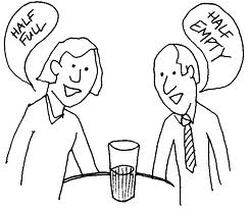 We’re going to be a little bit controversial this week, so we will understand if you don’t agree with us (by all means, tell us in the comments section). But we have given this subject a bit of thought and our reasoning is solid, we think. We are recommending that after you have published an ebook, you wait for a period before you publish a paperback (or hardback) version. We suggest waiting 4 - 6 months. This is contrary to the way mainstream publisher’s operate. They publish a hardback copy first (mainly to send to reviewers) then a paperback then, finally, the ebook. Nowadays it is common to publish all three fat the same time, but some publishers still spread the process out over 9 to 12 months. 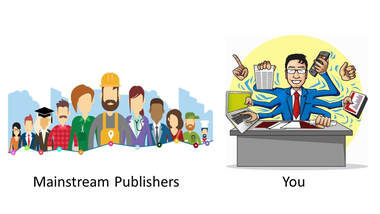 So, why are we recommending publishing the ebook first and then delaying a hard copy for up to 6 months, when mainstream publishers do the opposite? Mainstream publishers have an army of proof-readers and editors who work with the author to get it ready for publication. So, when they put out their hardcopy version, they are already confident about its narrative quality and that it is error free. Even then I’m sure we have all read books from mainstream publishers that have been error strewn. But Indie authors only have an army of one; themselves. If you want to change an ebook after publication, it is easy to do so. If you wish to change a paperback, it is much harder. OK, I’ll have to qualify that and say that some publishing platforms make it harder than others. 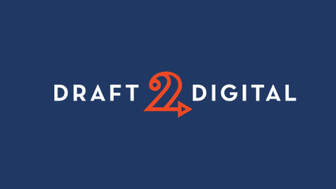 Because of the way Draft2Digital publish their paperbacks, using 3rd party printers, they don’t allow you to change the paperback content once you have approved the book for publication. You have to purchase “print change tokens” which cost $25 (about £20), which covers the cost of getting the 3rd party printer to make the changes.. So, why should this matter? Well, experience shows us that 30 seconds after you click on the “publish” button, you will spot a typo in the MS. Or, more likely, your readers will spot a typo. Secondly, once the book starts to sell you start to get reviews and if the reviews are negative you will want to do something about them. 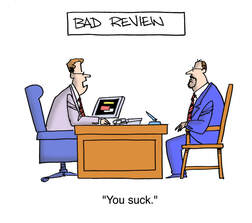 So, you need to give yourself some breathing space to correct the typos and to make changes to the MS to address the issues that have resulted in you getting the negative reviews. There is a psychological factor that will come into play as well and that may affect the sale of future books. If someone pays $5 for an ebook and they aren’t happy with it, you may get away with it. For those sorts of prices, the reader may not bother posting a review. They may even give the author a second chance and buy their next book. BUT For a $15.99 (£13.99) paperback the rules change. For that price the readers are much more likely to leave a negative review if they don’t like the book and they almost certainly won’t buy a second book by the same author. OK, in an ideal world your book will be perfect the day you publish it. You will have used the feedback from both your alpha and beta readers to improve the book. You will have formatted it properly and you will have eradicated all those pesky typos and incorrect homophones. But we don’t live in a perfect world. Some of those things will have slipped through. Even if you have paid a proof-reader to check your book (like a mainstream publisher does) some may still slip through because proof-readers have human failings too. You also may not have used alpha or beta readers, so you have no idea if your book is any good or if it can be improved.  By delaying the publication of your hardcopy version, you give yourself the time to sort out the teething problems. Your ebook readers effectively become your beta readers, editors and proof-readers. As a quality strategy it isn’t one we would recommend, but we are realists and we know from experience that this is what some authors are unwittingly doing. Now, I haven’t mentioned Amazon, but that is because they are more forgiving. If you want to change your MS for the hardcopy on Amazon, you are able to do so. But, as we’ve said in other blogs, Amazon is only one sales channel, and you need to be covering all possible bases. That means that if you are going to change the MS on Amazon you will also need to change it on D2D and that is going to cost you money.  And don’t forget those psychological connections between pricing, reviews and future sales. They apply equally to books bought on Amazon. So, when you’ve published your ebook and you get that prompt that says “Do you want to start your paperback?” please resist the temptation.to say yes. Take a step back, take a deep breath and say “No, I’ll leave it for now. I’ll come back in 4 - 6 months’ time when I’ve seen if there is anything wrong with my ebook version and had time to fix it”. Finally, if you are lucky enough for your ebook sales to go stratospheric, you can always change your mind and roll out the hardcopy before the 4-6 months has elapsed. If you have enjoyed this blog, or found it informative, then make sure you don’t miss future editions. Just click on the button below to sign up for our newsletter. We’ll even send you a free ebook for doing so.
0 Comments
 It’s a question a lot of Indie authors ask themselves, but isn’t easy to answer: “Should I do a free book giveaway?” If you only have one book out there, then the answer is “No” (but there are caveats to that – see later in this blog). The purpose of a free book promotion is to stimulate interest in your books, so that you sell more. But if you have given it away for free, who are you going to sell to? The people who have already had it for free aren’t now going to buy a copy, and if someone didn’t download it for free, they are hardly going to pay for it once the offer ends (again, see the caveats later). No, the idea of a free book promotion, or giveaway, is to showcase your writing, so that if readers like the free book, they will then buy your other books. For series writers this is a great incentive for doing a free giveaway. And for non-series writing authors with more than one title available, there is something in this for you as well.  "If it's free, I'll take 10, no 20, no 100 ...." "If it's free, I'll take 10, no 20, no 100 ...." OK, let’s deal with the elephant in the room. Yes, it is true that some people will download the free offer just because it is free and won’t then come back to buy any more of your books. But that is what I call “collateral damage”. It is unavoidable I’m afraid. But mixed in with the freeloaders will be readers who will try your book for free and then go on to buy more of your work if they like what they have read. I know this to be true because I have done it myself. I don’t think I’m unusual in this. At Selfishgenie we have also proved it with previous giveaways, which have resulted in an up-tick in sales of the other titles in the series after the promotion has ended. When we talk numbers later in this blog, they are based on actual results from previous promotions.  So, if you have more than one title available or you are a series writer, doing a free book giveaway can boost the sales of the rest of your books. You may have sensed a “but” at the end of that sentence. If you did, you have excellent intuition. But making a book free is no good unless you tell potential new readers about it, so that they can download it. There are free book listings on most etailing sites; Amazon certainly has one. However, a quick search we did for free books on Amazon returned 9,000 results. The chances of your book being on one of the early pages of the search results are pretty slim and if your book is anywhere more than five pages down the results, there isn’t much chance of it being found because people hardly ever go that far down search results..  I refined that search to “most downloaded free books” and the list was reduced to just 3 pages, but to get into that list your book must have already been download for free, so it won’t appear there on the day you start your promotion. It won’t appear there until someone, (actually several someones), has downloaded the book. Social media promotion will probably shift a few downloads for you, if you have a lot of followers. However, there is no guarantee that your posts about your free offer will be seen. If you only have a very small following on social media, then your reach is limited unless you get a lot of re-Tweets or shares. It may seem counter-intuitive, but you will probably need to spend some money to give your book away for free.  I don’t think Amazon or Google advertising are cost effective ways of doing that. You pay by the click, so it is difficult to control your spend because you probably need a lot of clicks to get enough downloads to start generating paid sales later, which means setting a high daily budget for your campaign. So, you need to look at other, cheaper ways to promote your free book. Ways that will generate lots of downloads. And you really want to know how much those downloads are going to cost you in the first place, so you can work out if you have any chance of getting your money back in paid sales. I’m talking about book promotion sites, which offer a fixed package for a fixed price.  Now, there are two types of book promotion sites. There are those that use social media to promote your book and those that use a wider range of approaches (which may include social media but may not). The most important of these other approaches is email lists, because they are bound to be seen by readers who are on the list. Please, don’t use sites that only offer social media promotion - you can do that for yourself for free. Ignore the fact that your book will be “featured” on the promoter’s website. This isn’t the best way for the promotion to be seen. If that were the case, then it being on Amazon should be enough – and it isn’t. There is usually no guarantee that the readers the sites reach are the right readers for your genre, however. You may be an author of fantasy books and some of the people on the email list may only read romance, or crime drama, or whatever. But at least the readers of fantasy will also see the promotion. Genre preferences are one of the reasons why a 1,000 clicks may only get 100 downloads.  We have recently run a trial using a book promotion website, for our title “The Magi” which produced some promising results. The site we selected boasts an email list of over 300,000 readers. The site promised a guaranteed 1,000 downloads for our free book but we actually only got just over 200 (I’ll return to that later, to explain how the guarantee works). We usually think in terms of 10% of downloads generating new readers for a series or, in this case, approximately 20 new readers. So, here’s the maths (or math if you are American). 1. The promotion cost us £67 ($75) after using a discount code found in this blog 2. The book sells for £4.99 on Amazon. 3. One sale generates about £3.50 in royalties. 3. There are 9 books in the series. 4. If a reader who downloads the first book for free then buys the other 8 books, then it generates 8 x £3.50 = £28. 5. Therefore 3 new readers returns a profit of (3 x £28) – £67 = £14 profit on the promotion. But we reckon 200 downloads should return 20 new readers, so the anticipated profit is about £490. Impressed? Ok, too early to place an order for a Ferrari, but profit is profit.  But we were guaranteed 1,000 downloads, so what happens now that we have fallen 80% short? The site owners promise us a pro-rata refund on the cost of the package. It is “site credit”, so we can’t take it in cash, but it does mean we can run another free book promotion in a few months’ time and it won’t cost us so much. It also means that our profit for this campaign will be higher because of the refund. As for why we didn't get the guaranteed 1,000 downloads, we'll return to that later. There is another aspect to the free downloads that we haven’t yet mentioned and that is the reviews that they generate. If you haven’t had many reviews for your book up to now, then this is a good way to get some more. I mentioned caveats earlier and this is one justification for an author with a single published title to run a free book promotion.  Remember, there were 200 downloads. That may generate a lot of reviews. Even freeloaders write reviews sometimes. And we all know how important reviews are for future sales. There is another time when an author with only one published title may consider doing a free book promotion. That is when they are about to publish a second title. Putting the first book out for free can stimulate demand for the second book. To make sure that this is capitalised upon, the author must put their new title on “pre-order” before running the free promo, and they must include a link to the pre-order at the end of the free book. That means uploading an amended manuscript that includes the link, but that is the work of moments. 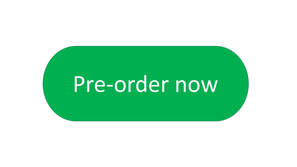 Once the pre-order goes live, whatever sales have been made will catapult the book up the sales rankings, which makes the book look more attractive to other readers who may not have taken advantage of the free download. However, it does require the book launch to be properly planned and timed, so that everything happens at the right time and in the right order. The book promotions site told us that 92% of the promotions they run for free books reach the 1,000 download target, so why didn’t ours do so well? We think we have some answers. We ran our promotion from Thursday to Monday and the number of downloads we got over the weekend was very low compared to the other 3 days. This suggests a lot of the email addresses to which the promotion is sent are work related, so no response at the weekend. But there is another possible reason.  Author Robert Cubitt Author Robert Cubitt The author of the free book, Robert Cubitt, is British but around 80% of the readers on the promotion site’s email list are American. Our actual downloads reflected that proportion, with about 20% coming from outside the USA (UK, Canada, Germany, France Netherlands and Australia to be precise) and 80% from within. Sad to say that many readers will only read books by authors who are the same nationality as them. I don’t know why this should be. I guess people like books that are either written by people like them or are about people like them. But The Magi is a sci-fi series and none of the characters are like the readers (unless there are aliens amongst us) so it shouldn’t matter. It shouldn’t matter for the fantasy genre either. But it does seem to matter, so we Brits will have to suck it up and make do with the scraps from the table. But a potential £490 profit is quite a big scrap and is certainly better than no profit at all. This is NOT a recommendation, but the website we used for the promotion we have discussed here is Book Butterfly. If you missed out on our recent free book giveaway, don’t despair. You can still get a book for free just by signing up for our newsletter. Just click on the button below (excludes “The Magi Box Set).  You’ve written this great book, but you can’t seem to capture the interest of an agent or publisher. You’ve sent it to every agent and every publisher in the listings, but all you get back is rejections and sometimes not even that. How long does this go on for before you ask yourself “Is it me?” On the other hand, you may feel that your work isn’t good enough for publication, so you may not have submitted it to an agent or publisher because you think it will be rejected. Why might you feel that way? Let me introduce you to the Dunning-Kruger effect.  Stupid people don't know they are stupid! Stupid people don't know they are stupid! This is a hypothesis in social psychology postulating that people of lower capability don’t know their capabilities are low, while people of higher capability don’t always realise how capable they are. This has sometimes been unfairly paraphrased as “stupid people don’t know they are stupid” and, of course, the opposite of that is that clever people sometimes don’t realise how clever they are. I have to say up front that there are critics of the hypothesis. Firstly, in some cultures there is great emphasis placed on modesty, so a clever person would never claim to be cleverer than someone else, because that would be immodest. Similarly, in some cultures it is considered rude to criticize others, so honest feedback on poor performance isn’t always provided. The other flaw is that the studies that were carried out to test the hypothesis used psychology students as the subjects and they aren’t representative of society as a whole. But leaving aside those criticisms, there is consistently strong evidence that the Dunning -Kruger effect is real . But what do we know about it?  David Dunning and Justin Kruger are the two American psychologists that came up with the hypothesis (published in 1999) after noting that some of their poorer performing students didn’t seem to realise how poor their performances were. They also didn’t improve after being given feedback on their performance. So Dunning and Kruger went looking for an underlying cause for this misperception of capability. To test the hypothesis, subjects were asked to complete some self-assessment tests on a range of subjects. After being given their results, the students were asked to rank themselves against their peers. Those that performed the worst tended to rate themselves higher than some of their peers, while those that had performed the best tended to rate themselves lower than some of their peers. 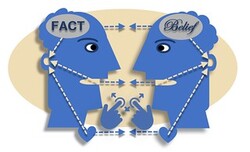 Subjects were interviewed after completing the exercise and asked why they had rated themselves as they had. The more capable students, who found the tests easiest, tended to think that their peers would also find the tests easy, so they had ranked themselves lower. Conversely, the poorer performing students, who had found the tests difficult, assumed their peers would also find the tests difficult and ranked themselves higher. This betrayed an internal bias. Poor performing students overrated their own performance, while better performing students overrated the performances of their peers. Even after providing feedback, these internal biases appeared to persist. 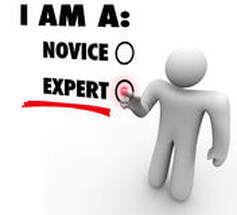 At this point I should inject a word of caution. The poorest performing students didn’t rank themselves in the highest performing bracket. So, a D grade student didn’t think they were performing as well as an A grade student. But they did assume they were performing as well or better than a C grade student. So, what has this to do with finding an agent or a publisher? Well, if we extend the Dunning-Kruger hypothesis into the world of publishing, an author who isn’t a great writer may, thanks to this internal bias, think that their work is better than it is. This will make it hard for them to understand why they are getting rejection after rejection. 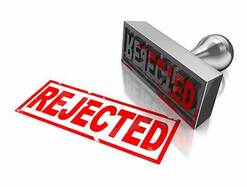 On the other hand, a good writer may feel that their work isn’t as good as that of other good writers and that may discourage them from submitting their work to an agent or publisher in the first place, because they assume it will be rejected. If that is the case, is there a solution for the writer? There may be. The first thing to do is to understand that a cognitive bias actually exists and recognise the effect it might be having on our own perception of ourselves. We need to actually ask if we are as good (or as poor) as we think we are. And the only way to answer that question is to seek out unbiased feedback.  Many of you will already have worked out that I’m talking about beta readers. Friends and family aren’t good beta readers, because they don’t want to hurt the author’s feelings. They would tell William McGonagall* that his poetry is great if he was a friend or relative. This means that if an author wants honest feedback on their work, the beta reader must be a stranger, so that they can provide feedback that is free of any bias caused by emotional involvement. But there is a trap here that many authors – and beta readers – aren’t aware of. While a beta reader may start off being an unbiased stranger, that relationship changes over time. Authors want the best feedback, so they will nurture a valued beta reader and use them again and again. But the beta reader is bound to have an emotional response to that nurturing and that may affect the nature of their feedback. In other words, they may develop an emotional bond with the author which could classify them as a friend, thereby losing the independent viewpoint that made them so valuable in the first place. You might think of it as the Catch-22 of beta reading. If you are starting to think of a beta reader as a friend, then they have lost their value, but not treating them as a friend risks losing them. Ideally an author will find new beta readers for each new work. But that means a lot of work identifying and cultivating them, only to have to do it all over again for the next book and the next.  Florence Foster Jenkins Florence Foster Jenkins But being aware that the trap exist in the first place is a good first step. Be aware that the beta reader may want you to like them almost as much as you want them to like your work. As soon as you have exchanged email addresses, an emotional bond is starting to form, so it is necessary for both authors and beta readers to try to maintain an “arm’s length” relationship. However, having independent feedback is no use if you don't respond to it. Your beta readers have given you feedback - use it to improve your work. If you ignore it because it isn't what you want to hear, you have fallen into another trap and the Dunning-Kruger effect even predicts that trap because it identified that subjects often didn't respond to feedback on their performance. Who knows, you may improve your work enough to find an agent or a publisher. * William McGonagall (1825-1902) was a Scottish poet whose poems were so bad that he became famous. People paid to see him read his poems for the comedy value (his work was quite serious in its subject matter). McGonagall, however, was deluded enough to interpret that as evidence of his genius. See also Florence Foster Jenkins. If you have enjoyed this blog or found it informative, why not make sure you don't miss future editions by signing up for our newsletter. Just click the button below. We promise not to spam you and you can unsubscribe at any time. Week 1 - the start of the journey OK, you’ve spent weeks, months, or even years writing your book and now you’re ready to get it published. That’s great, but however hard you have worked in writing your book, publishing is going to be even harder work. At least, it is if you want to actually sell some copies of your book. That is what this weekly blog is all about. What to do and what not to do to get your book published – and then getting it to sell.. This blog will also cover self-publishing because, despite everything said against it, you can be a successful self-published author. But that’s a discussion for the future. It is a sad fact of life that no matter how good your book, you may not be able to find a big (or even medium) name publisher. There are hundreds of thousands of authors working right now and only a handful will ever end up with a publishing contract. So, if you can't get a publisher, self-publishing is about the only route you have left to you if you want your book to be read. And if you are self-publishing, you are going to have to know how to market your book because, believe it or not, no one is going to stumble across it by accident, which is probably why the Stumbleupon webiste closed down. From Week 4 onwards we are going to be focused mainly on marketing your book, so stick with us, or maybe sign-up for our Newsletter so you don't miss a single issue of this blog. First, Week 1, Lesson 1. NEVER PART WITH MONEY. As with all industries, there are a lot of sharks out there just waiting to pray on the unwary, the innocent and the naïve. Don’t let that be you. If anyone is asking you for money to publish your book, run away. Run away as fast as you can. This includes paying a “deposit to cover our work”. There will be times when you do have to pay for certain services and I’ll cover them at the relevant points, but for the moment be suspicious of anyone who asks you for money, especially if all you know about them is their website URL and e-mail address. If all you know about them is their Twitter username, be even more suspicious. Reputable publishers don’t take money up front. They take a risk that your work is going to earn them an income when it is published. You trust them to do a good job with your book and they take a risk that your book is going to sell. This is why it is so hard to get a publishing deal. Publishers are taking a risk on you, but they don’t want it to be too big a risk, so they look for the sure-fire successes. Nowadays they don’t have teams of people reading submissions for them, they rely on literary agents to offer them the best books. That means you actually have two hurdles to get over – finding an agent that will represent you and then the agent finding a publisher who will put the book out. But if you can get an agent, you are a long way down the road towards success because agents are really only interested in potential best-sellers. There are smaller publishers (like us) who accept submissions direct from authors but, of course, a small publisher has less money to spend on marketing your work, so your sales volumes are likely to reflect that. But we’ll get onto the pros and cons of using small publishers another week.  But now to the main topic for this week’s blog. How do you know if your book is good enough to be published? You may think you have written 100,000 words of literary perfection, but readers may think it is 100,000 words of dog excrement. To find out which it is, you need to get an unbiased view of how good your book is before you start sending it off to agents and/or publishers. You're only going to get one shot, so it has to be your best shot. There may be things about your book that you can fix quite easily and there may be things that need major re-writes. As a publisher we see a lot of manuscripts (MSs) and a lot of them leave us scratching our heads and wondering how anyone thought that what they had submitted was fit to be put in front of the reading public. They aren’t necessarily bad in terms of their plot and characters, but to be readable they need a whole lot of work. It is the main reason that so many authors get rejection emails/letters (sometimes they don’t hear anything back at all). So, you really have to be sure that your book is as close to being ready for publication as is humanly possible. A publisher’s editor will help you to polish your book, but they won’t re-write it for you. The editor will provide you with the polish and the duster, but you have to do the work. So you may as well knuckle down and get the work done upfront. Friends and family are unreliable sources of feedback when it comes to assessing how good your work is. They love you (probably) and they don’t want to hurt your feelings (also probably). So, their feedback may be less than totally honest. This is especially true of spouses/partners, who would rather not get into a row with you about whether or not your book is good, why it isn’t and how his/her mother warned him/her not to marry you (those sorts of rows tend to escalate). What you need is beta readers. These are members of the public (alpha readers would be friends and family) who will give you feedback in return for a free copy of your book. How do you find beta readers? On social media.  This is where Twitter and Facebook can be useful. Put out a post asking for beta readers and make up a shortlist from the replies (5 or 6 is usually enough but more is OK). Make sure you specify your genre. There’s no point in getting beta readers who mainly read thrillers if your book is a period romance. When you send the copy of your book, you need to:
When you get the answers, make sure you understand them (check back with the reader if you don’t) and then act on them. This is most important. There is little point in asking for feedback if you are going to ignore it. I have been a beta reader and fed back to an author and they totally ignored what I had to say. I don’t mean they didn’t accept my comments on what was wrong with the book; I mean they didn’t even correct the typos that I pointed out. This means allowing time in your publishing schedule to review and act on the feedback. So, if you are going to self-publish on a specific date, there’s no point in giving a “respond by” date for the day of publication. Plan for there being major changes needed and you won’t leave yourself short of time before publication. Certainly, don’t start “querying”* the book until you have made the necessary changes. After all, the whole object of the exercise is to improve your book, so it is more likely to be accepted when you do start querying. Finally, don’t get defensive. The beta reader is trying to help you. You may not like what they have fed back to you, but you asked for their opinion and they have given it. It’s not their fault if you wrote a book that they didn’t like. Take the feedback seriously. If you don’t like what was said – don’t get into an argument. Just thank the beta reader for their input (do that anyway, it’s good manners). If you don’t agree with the feedback that a beta reader has given you, then you don’t have to do anything. But if more than one beta reader has said the same, or at least similar, things then it is well worth taking some time to reflect on what has been said. If one person says something it might be discounted as “opinion” but if two people are saying the same, it may mean that changes need to be made. If three people are saying it – you have a problem and it needs fixing. Finally, if you have made changes, you should go back to the beta a reader that suggested them to see if they think you have made an improvement. There’s no need to send the whole book, just the relevant passages. There are people who provide a "paid for" beta reading service. One of our authors used one for one of his books and the feedback he got was very valuable. But check what they are offering (are they actually beta readers or are they “proof readers”**) and check to see what sort of reputation they have. Reputable providers will be only too glad to tell you which authors they’ve helped and you can check with the authors themselves by using their social media to contact them. You probably got into writing because you are also a reader – so why not be a beta reader yourself? Your opinion is as valid as anyone’s and it’s a great way to get free books and to discover new authors. It’s also good for your karma (if you believe in karma) to help others. You could start by being a beta reader for one of our authors. Their contact details can be found alongside their author profiles by clicking here. That’s it for this week. Next week we’ll be looking at how to find an agent or publisher. * Querying – the technical term used for approaching an agent or publisher. ** A proof reader is someone who checks the spelling and grammar in your work and looks for typos. They don’t provide any feedback on the quality of the writing. Now for the hard sell (well, maybe not so hard). You can find out all about the books we publish by clicking the button below. To make sure you don't miss any of the blogs in this series, sign up for our newsletter here.
|
AuthorThis blog is compiled and curated by the Selfishgenie publishing team. Archives
June 2025
|
||||||
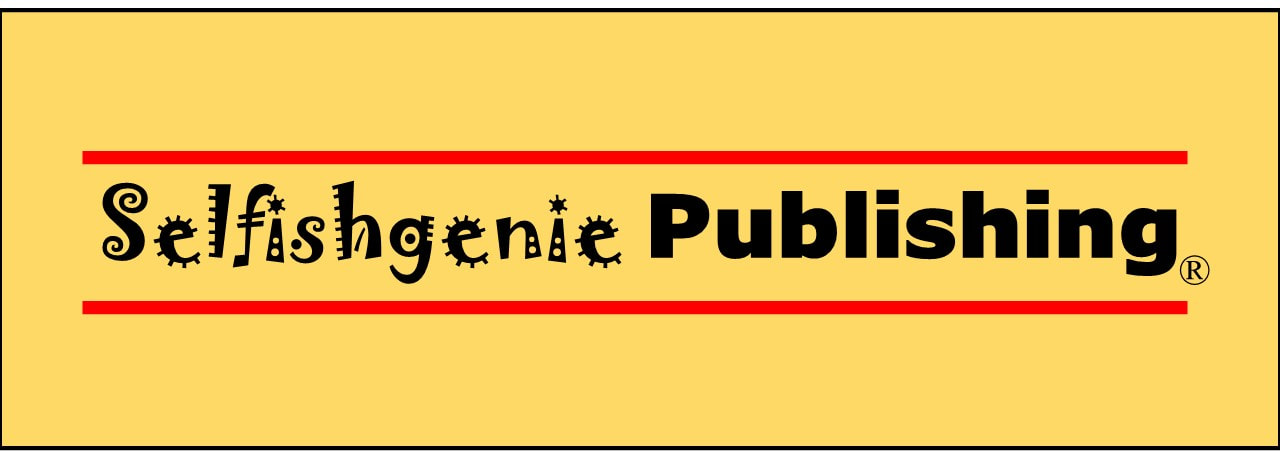

 RSS Feed
RSS Feed